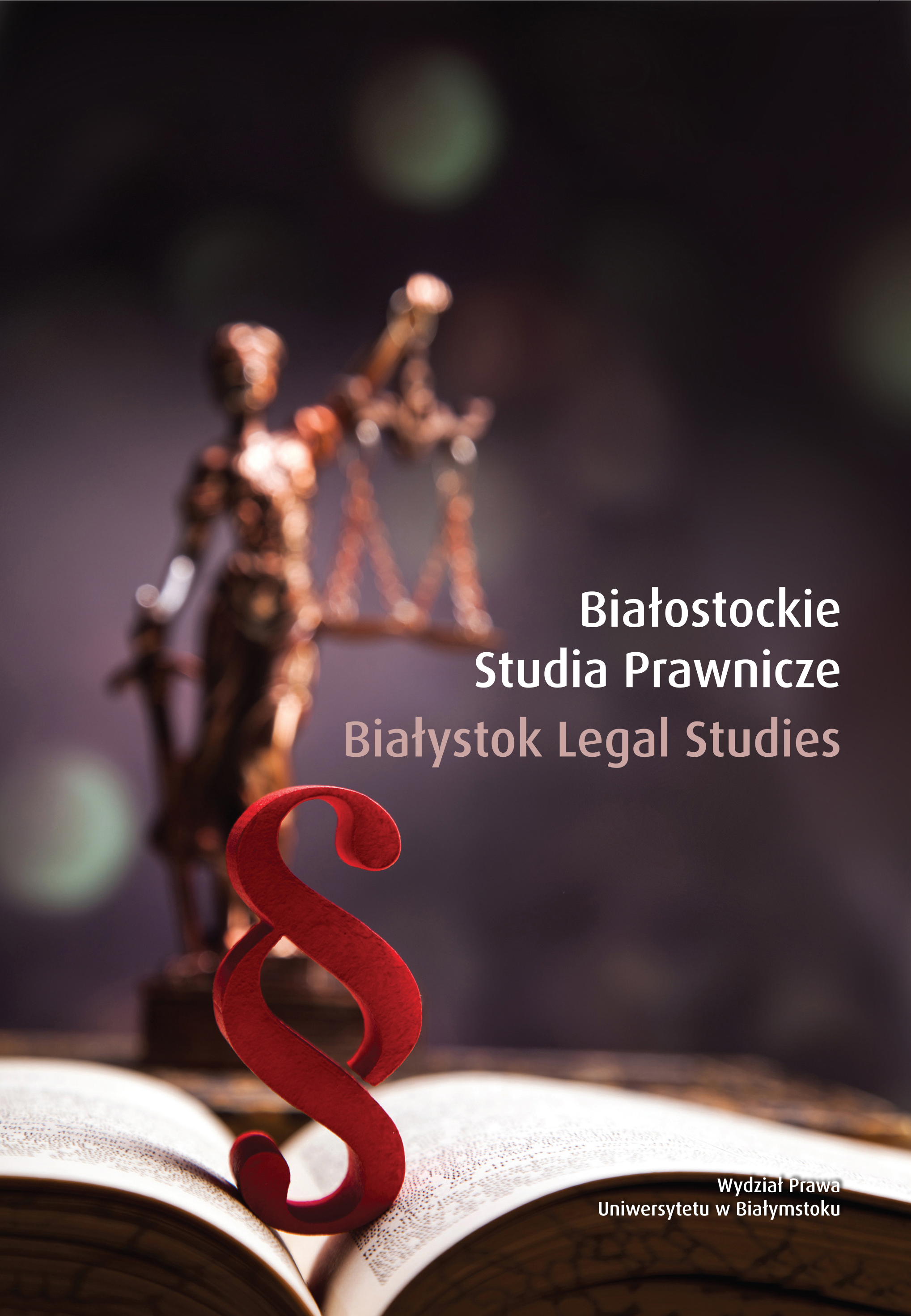Systems of Selection and Appointment of Judges and the Issue of Judicial Independence: American, English and German Experiences
Abstrakt
The article aims to investigate the influence of different systems of selection and appointment of judges adopted in the legal systems of the United States, England and Wales, and Germany on judicial independence. In these countries, the following methods are used for the selection of judges: appointment by the executive, appointment by the career or civil service judiciary, shared or parity appointments and appointment by judicial committees. Comparative law analysis shows that the adoption of a particular method for the selection of judges, especially in connection with the term of office, may have an impact on their independence and impartiality. Especially risky seems to be the American justice system, which rooted in the idea of “popular constitutionalism” methods of election and re-election of judges could jeopardize fair trial guarantees. In England and Wales, of great importance in strengthening the independence of the judiciary was the introduction of the Constitutional Reform Act of 2005 and the institution of the Supreme Court. In Germany, independence of the judiciary is guaranteed by the Constitution and the Constitutional Court. Further observations indicate that both in common and continental law, the universal guarantee of independence of the judiciary is for judges to follow ethical and professional dignity principles.Bibliografia
Brody D.C., The Use of Judicial Performance Evaluation Enhance Judicial Accountability, Judicial Independence, and Public Trust, Denver University Law Review, vol.86, 2008-2009
Bruhl P., Leib E.J., Elected Judges and Statutory Interpretation,University of Chicago Law Review, vol. 79, 2012
Fornauf M., Die Marginalisierung der Unabhängigkeit der Dritten Gewalt im System des Strafrechts, Frankfurt am Main 2010
Geyh C.G., The Endless Judicial Selection Debate and Why it Matters for Judicial Independence, The Georgetown Journal of Legal Ethics vol. 21, 2008
Gontarski W., Porównanie niekontradyktoryjnego (kontynentalnego) procesu karnego z procesem kontradyktoryjnym (anglosaskim), (in:) Proces karny. Rozwiązania modelowe w ujęciu prawnoporównawczym. System prawa karnego procesowego. T II (ed. P. Kruszyński), Warszawa 2014
Judges, University of Chicago Law Review, vol. 89, 2013
Kraśnicka I, Ludwichowska A., Wprowadzenie do systemu prawa Stanów Zjednoczonych, Toruń 2012
Kraśnicka I., Systemy wyborów sędziów stanowych w USA, Białostockie Studia Prawnicze 2015
Malinowski Ł, Postępowanie po wniesieniu aktu oskarżenia do sądu, (in:) P. Kruszyński (ed.), Proces karny. Rozwiązania modelowe w ujęciu prawnoporównawczym. System prawa karnego
procesowego, Warszawa 2014
Przewodnik etyki sędziowskiej. Zasady etyki dla sędziów Anglii i Walii. Guide to Judicial Conduct (with the introduction by R. Sarkowicz), Warszawa 2007
Redish M.H., Aronoff J., The Real Constitutional Problem with State Judicial Selection: Due Process, Judicial Retention, and Th e Dangers of Popular Constitutionalism, William & Mary Law Review, vol. 56, 2014
Rosinek J., Some Thoughts on the Problems of Judicial Selections, Court Review, Summer 2004
Ross II B.L., Reconsidering Statutory InterpretiveDivergence between Elected and Appointed Sprack J., A Practical Approach to Criminal Procedure, Oxford 2008
Volcansek M.L., Judicial Elections and American Exceptionalism, Deapaul Law Review, vol. 60, 2010-2011
Wiliński P., H. Kuczyńska H., Rzetelny proces karny w orzecznictwie międzynarodowych trybunałów karnych (in:) Rzetelny proces karny (ed. P. Wiliński), Warszawa 2009
Wittereck F., Die Verwaltung der Dritten Gewalt, Tübingen 2006
Woodhouse D., United Kingdom. The Constitutional Reform Act 2005 – defending judicial independence the English way, The International Journal of Constitutional Law, vol. 5, 2007



